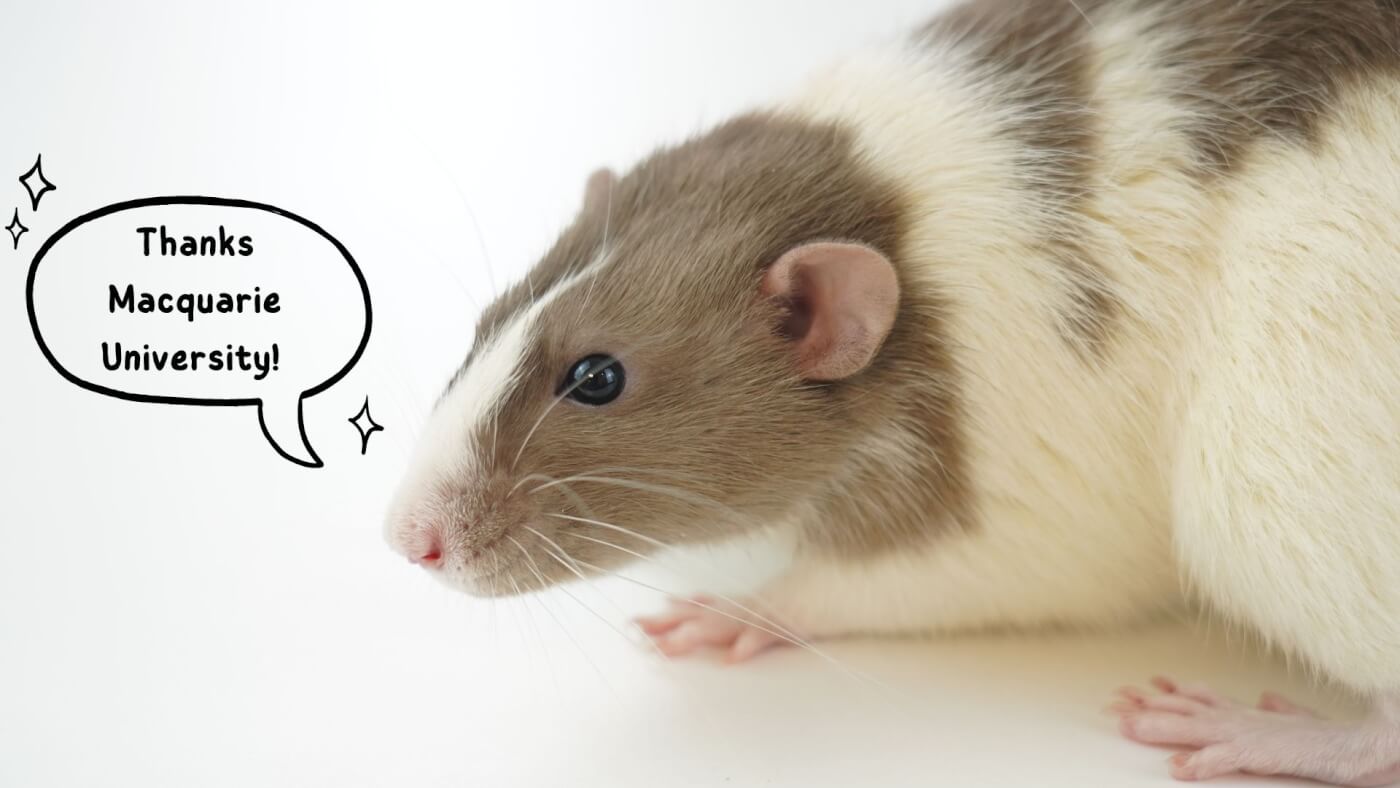
Victory for Mice! Macquarie University Bans Notoriously Cruel Lab Test
In a win for animals and science – Macquarie University has banned the forced swim test!
In a statement about the decision, the university said it had reviewed its position on the test after receiving correspondence from PETA, PETA US and Humane Research Australia.
“Given this review, our committee has decided that we will prohibit the forced swim test”

What is the forced swim test?
The forced swim test – also known as the “despair test” – was supposed to provide insights into human depression, but most scientists now agree it is not fit for this purpose. Small animals – usually mice or rats – are often dosed with drugs and dropped into cylinders of water. At first, they try to escape by attempting to climb up the sides of the beakers or even diving underwater in search of an exit. They paddle furiously, desperately trying to keep their heads above water, until eventually they start to float.
Some experimenters claim that animals who spend more time floating are depressed, but experts reason that floating is more likely to be an indication that animals are learning, conserving energy, and adapting to a new environment.
Forcing frantic animals to swim in an inescapable cylinder of water is both physically and psychologically abusive – not to mention completely irrelevant to human depression.
The tide is turning
At PETA we believe that when people know better, they can do better. That is exactly why we wrote to Macquarie University and let them know that the forced swim test is not just cruel, it’s bad science. We even sent a copy of PETA US neuroscientist Dr Emily Trunnell’s paper on the subject, published in the esteemed journal Drug Discovery Today.
Macquarie University’s move away from the test puts it in line with the University of Adelaide, University of South Australia, Griffith University, King’s College London, and more than a dozen large pharmaceutical companies – including Pfizer, Johnson & Johnson, Bayer, AbbVie, Roche, and AstraZeneca – which have all called time on the forced swim test.
But we’re not done yet.
Join us in urging more Australian universities to follow Macquarie’s example:
Help Animals in 2025: Renew Your PETA Membership!




